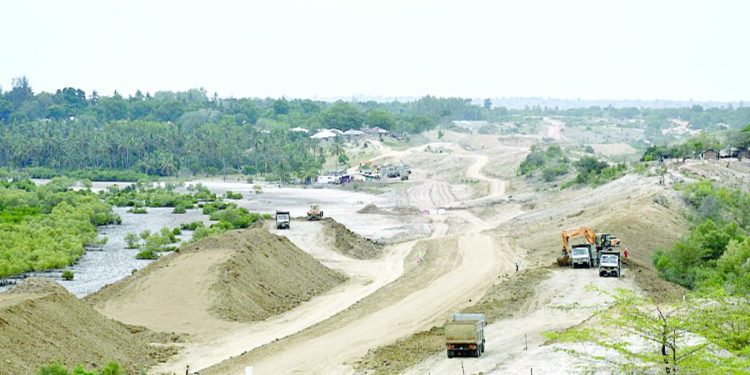In a bid to advance Dongo Kundu Special Economic Zone (SEZ) project, the government has unveiled a resettlement scheme in Mbuta location, Likoni Sub-County. This initiative seeks to relocate hundreds of individuals residing within the designated area, clearing the path for the long-awaited implementation of the SEZ.
The decision to establish the resettlement program comes five months after President William Ruto suspended a compensation package totaling KES 4.0 Billion for the affected group. In a notice to the public, the government outlined its intention to resettle 1,648 project-affected persons on the designated land.
“The 1648 households will be settled to pave way for implementation of SEZ, and the land will be divided into 1/3 and 1/8-acre parcels,” reads part of the notice issued by the National Environment Management Authority (NEMA).
Crucially, the government has pledged to ensure that those to be resettled are provided with basic amenities and public utilities, underscoring its commitment to upholding the welfare of affected individuals during the transition process.
The establishment of the resettlement scheme marks one of the final steps in the government’s efforts to kickstart the implementation of the Dongo Kundu SEZ project, which has faced significant delays over the years. Spearheaded by the Kenya Ports Authority and funded by the Japan International Cooperation Agency (JICA), the project holds immense promise for enhancing trade and industrialization in the region.
However, compensation complications have hindered progress, leading to reluctance among investors to commit fully to the project. As a result, only three investors have been allocated land within the Dongo Kundu SEZ, in stark contrast to the more than 16 who have already moved into the Naivasha SEZ.
The government’s proactive measures to address compensation disputes and expedite project development signal a renewed determination to unlock the economic potential of the Dongo Kundu SEZ. With stakeholders eagerly anticipating progress, the resettlement scheme represents a significant stride toward realizing the project’s objectives and driving economic growth in the region.
As efforts to implement the SEZ gain momentum, stakeholders remain hopeful that the project will serve as a catalyst for job creation, infrastructure development, and overall socio-economic advancement in the area.












